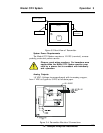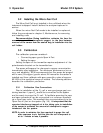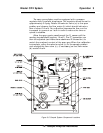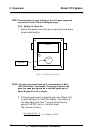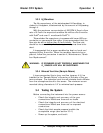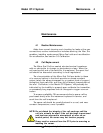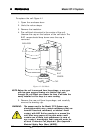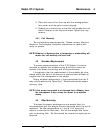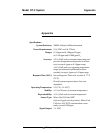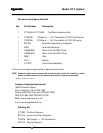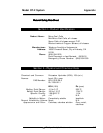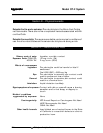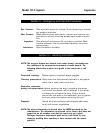
Teledyne Analytical Instruments
A-4
AppendixAppendix
AppendixAppendix
Appendix Model OT-2 System
Section III – Physical Hazards
Primary route of entry: Ingestion, eye/skin contact
Exposure limits: OSHA PEL: .05 mg./cu.m. (Pb)
ACGIH TLV: 2 mg./cu.m. (KOH)
Effects of overexposure
Ingestion: The electrolyte could be harmful or fatal if
swallowed.
Oral LD50 (RAT) = 3650 mg./kg
Eye: The electrolyte is corrosive; eye contact could
result in permanent loss of vision.
Dermal: The electrolyte is corrosive; skin contact could
result in a chemical burn.
Inhalation: Liquid inhalation is unlikely.
Signs/symptoms of exposure: Contact with skin or eyes will cause a burning
sensation and/or feel soapy or slippery to
touch.
Medical conditions
aggravated by exposure: None
Carcinogenicity: NTP Annual Report on Carcinogens: Not listed
LARC Monographs: Not listed
OSHA: Not listed
Other health hazards: Lead is listed as a chemical known to the State
of California to cause birth defects or other re-
productive harm.
Potential for fire and explosion: The electrolyte in the Micro-Fuel Cells is
not flammable. There are no fire or explosion hazards associated with Mi-
cro-Fuel Cells.
Potential for reactivity: The sensors are stable under normal conditions of
use. Avoid contact between the sensor electrolyte and strong acids.
Section IV – Health Hazard Data



